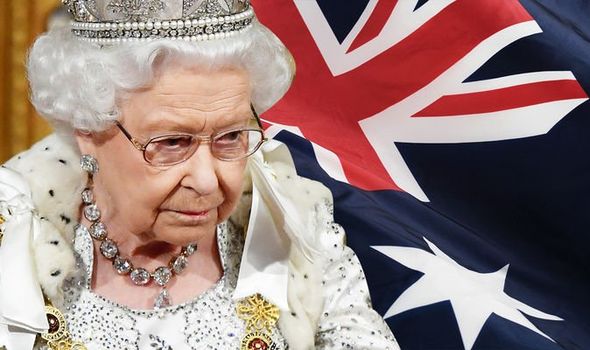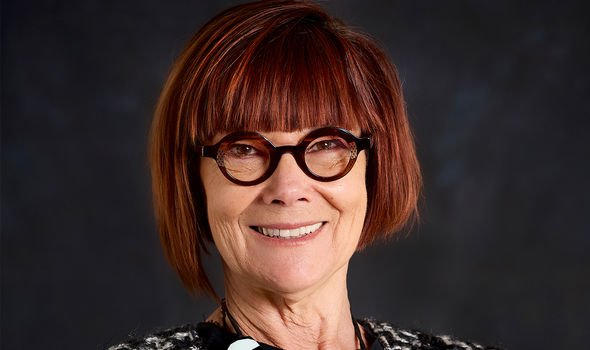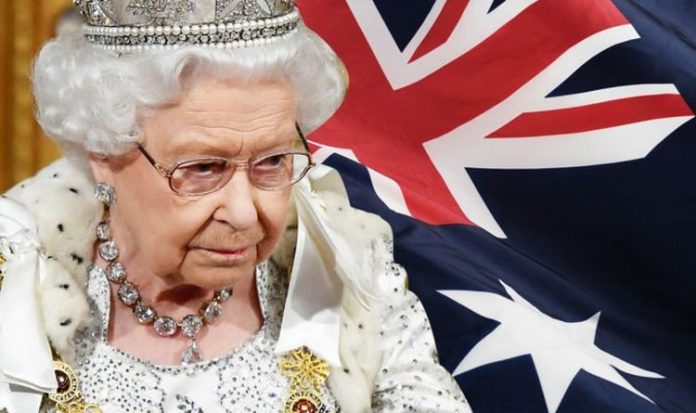In The Crown season four, Prince Charles and Princess Diana embark on a royal tour of Australia and it is impressed upon them how important the trip is due to rising republican sentiment in the Commonwealth country. Well-known anti-royalist Bob Hawke had just become the new Prime Minister and there were fears of Australia breaking away from the monarchy. The Queen calls Charles and Diana stresses the importance of the trip and says she hopes it will help with their marriage, as it did for her and Prince Philip decades before.
A courtier tells the royal couple: “As you know, Australia is one of the most important and influential members of the Commonwealth.
“If they were to strike out and assert their independence, the worry is that other countries could fall like dominos.”
Despite concerns about their marriage, Charles and Diana’s 1983 tour of Australia was a triumph and reportedly helped raise the popularity of the monarchy in Australia.
However, the question of republicanism did not go away completely.
READ MORE: Prince Charles’ gender ‘may affect republicanism’ after Queen’s death

Queen Elizabeth II is currently the head of state of Australia (Image: GETTY)

Emma Corrin as Diana and Josh O’Connor as Charles on the Australia tour in The Crown (Image: Netflix)
In 1999, there was a referendum on the subject, in which the Australian people voted 54.9 percent in favour of keeping the Queen as their head of state.
This put to bed the question for several years, but republicanism is bubbling up again, according to historian ProfessorJenny Hocking.
Prof Hocking, who is on the National Committee Member of the Australian Republic Movement, argued the biggest obstacle in 1999 was indecision about what the alternative would be to the monarchy.
However, she suggested questions over what an Australian republic will look like are going to be hashed out in the next year or two.

Former Prime Minister of Australia Bob Hawke (Image: GETTY)
She told Express.co.uk: “There’s always a majority support for a republic, largely, in Australia.
“The difference has been there are disputes as to the nature of the head of state role, which of course currently is the Queen, and how that will be appointed or elected, what form that will take, what powers that will have.
“That tended to divide the republic debate and that’s certainly what happened with the failed referendum.
“And that’s the big question that has to be hashed out over the next year or two, I think.”
DON’T MISS
Princess Diana was ‘traumatised’ by humiliating Prince Charles comment [QUOTE]
Meghan Markle’s first trip with Queen ‘might have been mistake’ [EXPERT]
Charles liked Camilla because she was ‘happy to remain in the shadows’ [INSIGHT]

Historian Professor Jenny Hocking (Image: Janusz Molinski Photography)
She added that it must be a bipartisan process because the history of referenda in Australia shows that, without this, it is almost impossible for them to get passed.
This is because, for a referendum to pass, not only do they require an overall majority to vote in favour, they also require the majority of the states to support it.
She said: “We have two very strong major parties with strong consistent support bases, so [bipartisan support] will almost always certainly bring you the highest likelihood of success.”
Prof Hocking is a prominent historian who won a court case this year, which resulted in some of the Queen’s letters in the Australian National Archives being released to the public.
The letters in question were correspondence from 1975 between the Queen, her then-private secretary Sir Martin Charteris, and then-Governor-General of Australia, Sir John Kerr in the lead up to the Dismissal.
The Dismissal refers to a constitutional crisis in Australia when Sir John Kerr, the Queen’s representative in Australia, dismissed Prime Minister Gough Whiltam after he failed to get his budget through the Australian parliament.
Leader of the Opposition Malcolm Fraser was installed as caretaker Prime Minister and debate has raged ever since as to whether Sir John had the right to make such a decision and to what extent the Queen and the royal household were involved.
These letters were kept under wraps for 45 years and were released this year after a four-year legal battle spearheaded by Prof Hocking.
She told Express.co.uk that, having now read these documents, they show a “deeply disturbing” level of political engagement between the Queen’s right hand man and Sir John Kerr in the lead up to his controversial decision.
‘The Palace Letters: The Queen, the Governor-General, and the plot to dismiss Gough Whitlam’ by Jenny Hocking will be released on December 10. It can be found here.







